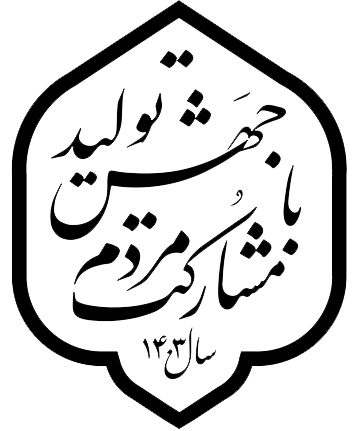This office comprises of certain groups having thematic commitments as follows:
A. Reformation, renovation and improvement of olive orchards;
- Investigation and site-selection for olive orchards;
- Identification of specific/olive projects;
- Planning and following up on water harvesting schemes;
- Monitoring on olive orchards establishment followed by soliciting and evaluation of provincial reports;
- Derivation of technical instructions for irrigated / rain–fed olive orchards establishment under varying climatic conditions;
- Analyzing the existing management style on olive orchards ;
- Preparation of technical guidelines on pruning, nutrition and grafting followed by surveillance on managerial operation and on farm-supervisors of olive orchards;
- Planning for raising fund and supervising on its expending and execution of activities by contractors;
B. Group of processing, quality improvement and mechanization:
- Planning and pursuing for working capitals;
- Need-assessment of processing plants creation in regard to growing poles;
- Monitoring and evaluation of harvesting stage and processing affairs ;
- Coordination with mechanization center for upgrading the Mechanization Index ;
- International Olive Council (IOC) and upgrading related know-how:
- Coordination and need–assessment on holding national / int’l courses with foreign instructors for Iranian experts/managers;
- Survival and activation of the ” Test Panel” for evaluation of olive-oil quality followed by updating standards in olive-oil processing plants;
- Planning , budgeting and crediting in olive projects;
- Drafting and coordinating on agreements for further conclusion;
- Preparing operational and financial plans for provincial growers;
- Incorporating key parameters within the 6th National Development Plan for olive promotion;
- Conducing every task related to provincial credits and statistics;
- Supporting technical supervisors of olive farming and related businesses in provinces ;
Opportunities in supporting olive farming:
- Need for importation of 1 million tons / year of various oils and hence, olive oil accounts for a fair alternative;
- Existence of precious olive germ-plasm scattered over 15 provinces posing less irrigation requirement and higher productivity;
- Prolong economic span with less inputs and wider adaptability to climatic variances;
- Existence of 6 olive research stations across the country supported by qualified experts;
- Conducted feasibility studies in 11 provinces and identification of 395000 ha potential sites for olive cultivation:
- Accessing to IOC scientific/field know-how on olive growing for practitioners / experts and animators :
Challenges in olive farming:
- Failure of certain olive orchards in some provinces which need for grafting and rehabilitation;
- Huge and outstanding dues imposed on olive growers owing to unpaid installments;
- Greater tendency showed by farmers to produce conserved olives rather than extraction of olive oil;
- Poor availability of proper cultivars to meet climatic variances worsen by lack of integrated management on olive plantation strategy;
- Sever water scarcity with worn–out irrigation systems and low-mechanization index;
- Poor participation of private sector in this business;
- Inadequate transfer of findings to traditional olive fields;
National policy on olive:
- Increasing productivity of olive oil for self sufficiency improvement;
- Encouraging greater consumption of olive oil for enhanced nutrition and social health;
- Improving irrigation productivity and wider mechanization influence in olive orchards;
Quantitative scopes:
- Production of 26000 tons of olive oil by the end of the 6th National Development Plan;
- Conducting needed operation for developing olive orchards over 51537 ha.
- Taking reformation actions in 46440 ha. of olive plots to upscale productivity and control pests and diseases.



